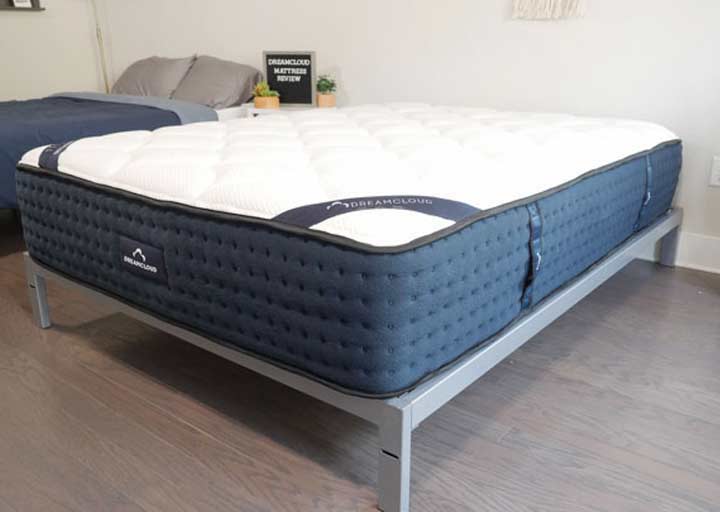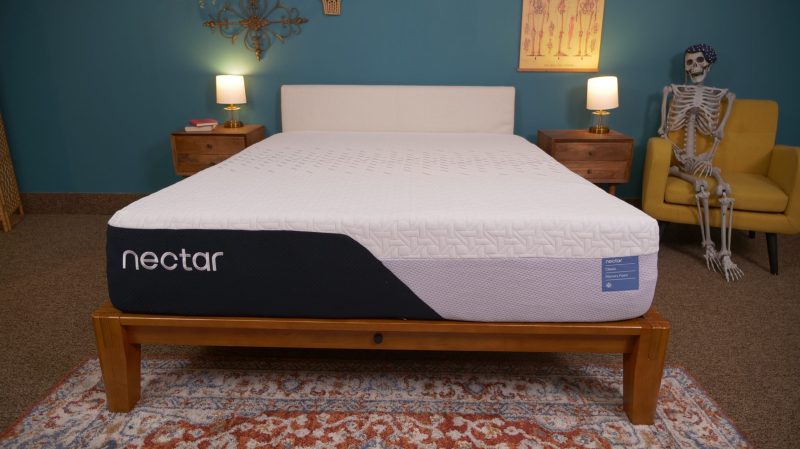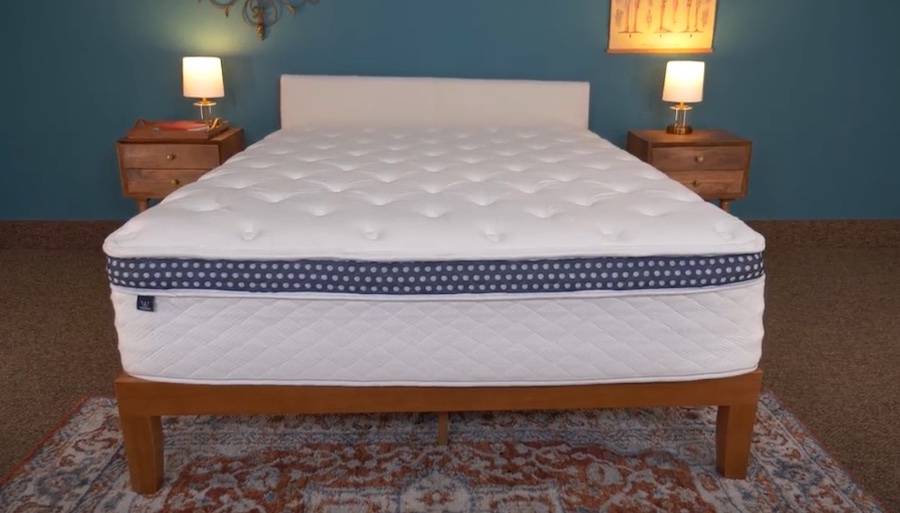According to the U.S. Bureau of Transportation Statistics, nine out of 10 long-distance trips are taken in personal vehicles, such as cars.1 While road trips can be fun, it’s also imperative that you get some good rest along the way. Some travelers prefer to stay in motels or hotels during the trip, while others may prefer to sleep in their cars.
Sleeping in your car during a road trip can be a great way to save money or a backup option if there are no vacancies at a nearby motel. While it won’t be as comfortable as your bed at home, there are steps you can take to improve the experience. With comfort and safety in mind, here are 12 tips on how to sleep in your car during a road trip.
13 Tips to Safely Sleep in Your Car During a Road Trip
1. Find a Safe Space to Park
If you’re planning an overnight stopover en route to your destination, there needs to be an element of planning involved for your safety. You might assume it’s fine to park on a public side street and sleep, but we recommend first checking if there are any local laws that prohibit this.
A safer option, though, is to find a busy, well-lit truck or rest stop – many even have shower/toilet facilities and restaurants. There are also plenty of rest areas across the United States, but these may not be well-populated, especially in rural areas.
Wherever you park, it’s a good idea to be in sight of security cameras and place all valuables out of sight. You should also keep your phone charged and let a friend or relative know your location in case of an emergency. Remember, if you have a bad feeling about a particular location, follow your gut and move on to a nearby backup stop.
2. Check the Rules for Overnight Parking
If you’re planning on parking on a public road, check for signage that indicates the overnight parking rules. If you plan to park at a truck stop or rest area, you can check the state’s Department of Transportation website to see if overnight sleeping is allowed there.
Walmart car parks welcome overnight travelers, although you need to ask permission in advance from the store manager, which is dependent on availability and local laws.2
3. Dress Comfortably
Whether you’re driving or sleeping, it’s helpful to dress comfortably in loose, breathable clothing, with fabrics like cotton, linen, wool, and bamboo being ideal. Loose clothing will allow you to feel more comfortable, while breathable fabrics can help keep you from becoming too warm, which is helpful since cooler environments are better for sleep.
You should also pack a pair of cozy socks to wear when sleeping as research suggests that wearing socks to bed in a cool environment improves sleep quality.3
4. Bring Pillows and Blankets
Bringing pillows and blankets can help make sleeping in your car more comfortable. Your favorite pillow can help keep your head and neck in healthy alignment overnight.
For most adults, the optimal temperature for sleep is 60 to 67 degrees Fahrenheit, so bring a blanket if it’s cold out, or a thin sheet if it’s warm.
Happen to have an RV or Pop-Up? Explore the best rv beds.
5. Consider a Mattress (if one fits in your car)
If you sleep in your car often and have a car that fits a mattress, consider purchasing a affordable twin size mattress. If you have a pickup truck with a hard or soft top topper, a full size mattress may be a good option as well. You can find a few great options that we’ve tested:
Product
Type
Score

Product
Type
Score
6. Wear an Eye Mask
Parking up in a well-lit area is great for safety but not so great for restful sleep. Wearing an eye mask for sleeping can help block out light that might otherwise interrupt your rest. In fact, a study published in the Sleep Journal found that subjects had better memory and alertness the next day after sleeping with an eye mask, compared to sleeping without one.4
7. Park in the Shade
Even if it feels cool at night, cars can heat up quickly when the sun comes up. Research shows that on a 95-degree day, a previously air-conditioned small car that’s sat in the sun can reach 122 degrees Fahrenheit in 20 minutes.5 After 40 minutes, this can increase to 150 degrees Fahrenheit. This is especially dangerous for babies and children.
Park in the shade when possible and/or use windshield and side window sun shades, which can help reduce the car’s interior temperature by reflecting the sun’s rays away from the vehicle. Consider bringing a battery-operated mini-fan with you on warm, summer nights and avoid sleeping in your vehicle altogether in extreme temperatures.
8. Bring Ear Plugs
Most of us need a peaceful, quiet environment in order to fall into a deep slumber. In fact, environmental noise can negatively affect sleep quality, which, in turn, contributes to daytime sleepiness and decreased cognitive performance the following day – the last thing you need while driving.6
Research from the European Sleep Research Society suggests that sleep disturbances are lower when wearing ear plugs, so it’s a good idea to bring some with you.7
9. Keep Your Doors Locked
It goes without saying, but always ensure your doors are locked for safety. You should also double-check check your car doors are securely locked before going to sleep.
10. Turn Off the Car
You might be tempted to keep the car running while stationary so you can benefit from the AC or heater, but this could be a fatal decision. There’s a risk of dangerous exhaust fumes containing carbon monoxide – a poisonous, odorless, and colorless gas – entering the vehicle if you do so.8 Carbon monoxide is incredibly harmful when inhaled in large amounts, which can lead to serious illness or even death.
11. Cover Your Windows for Privacy
Even if you’re sleeping in a public space during your road trip, you probably still want a bit of privacy while you rest up. Use sun shades, towels, blankets, or other fabric to cover the windows and keep prying eyes out.
12. Pack Water and Snacks
Don’t rely on rest stop conveniences for sustenance – always bring more water and food than you think you’ll need, just in case. Research shows that even mild dehydration can lead to a significant increase in minor driving errors during long, monotonous drives.9 The impaired concentration and alertness that can occur is equivalent to that of being tired or having a blood alcohol content of 0.08 percent (the legal driving limit).
13. Remain Upright With Your Seatbelt On
If you’re sleeping in the passenger seat while the car is in motion, avoid reclining your seat as this will prevent your seatbelt and airbag from working properly in the event of an accident. Studies show that sleeping in the reclined position in a moving car carries a higher risk of neck injury and death.10 Keep your seat upright and invest in a travel pillow to help prevent your head from bobbing.
FAQs About Sleeping in a Car
Is it safe to sleep in your car with the windows closed?
Yes, it’s safe to sleep in your car with the windows up, so long as the engine isn’t running.
Is it possible to sleep in your car overnight?
Yes, it is possible to sleep in your car overnight as long as you double-check the local laws on this and that the space is open to the public. If you want to sleep in your car on private land, you’d want to get permission beforehand.
At what temperature is it safe to sleep in your car?
During cold weather, there’s a risk of hypothermia when sleeping in your car. Hypothermia is a serious condition that occurs when your body temperature drops below 95 degrees Fahrenheit due to exposure to the cold.11 The Centers for Disease Control and Prevention (CDC) states that hypothermia usually occurs when the environmental temperature is below 40 degrees Fahrenheit, but it’s also possible at temperatures above this if you’re wet from rain, cold water, or sweat.12
In hot weather, the temperature can rapidly increase inside a car, potentially causing heat stroke. This is when the body overheats, and its usual cooling mechanisms – like sweating – fail, causing your body temperature to increase dramatically within 10-15 minutes.13 Heat stroke can lead to serious illness or death, if not treated.
While everyone reacts to temperature differently, it’s best not to camp out in your car in adverse weather conditions. If you’re shivering, feeling too hot, or generally feeling unwell, don’t risk it.
How long can you sleep in your car with the AC on?
Under no circumstances should you sleep in your car with the AC on, as this could lead to fatal carbon monoxide poisoning.8
Is it safe to sleep lying down in a moving car?
No, it’s not safe to sleep lying down in a moving car. While it may be more comfortable to lie in the back seat or recline in the passenger seat, you’ll be putting yourself at risk of serious injury in the event of an accident. First, the seatbelt and airbag won’t be able to do their job of protecting you. Second, sleeping in a reclined position in a moving vehicle has been linked to higher rates of neck injury and mortality.11
Final Word of Advice
If you are considering spending the night in your car, we hope you find these tips helpful. First and foremost, the goals are to be safe and get a good night’s rest. Lastly, if you’re missing that hotel mattress feeling, know that you can always move to a hotel or motel if you’re finding car sleeping difficult.

Lisa Bowman
Writer
About Author
Lisa is a content writer for Sleep Advisor, which combines two of her greatest passions – writing and sleeping. She can also be found writing about fitness, sustainability and vegan food.
Combination Sleeper
References:
- “National Household Travel Survey Long Distance Travel Quick Facts”. United States Bureau of Transportation Statistics. 2017.
- “Can I park my RV at a Walmart store?”. Walmart. Webpage accessed May 22, 2024.
- Ko, Yelin., Lee, Joo-Young. “Effects of feet warming using bed socks on sleep quality and thermoregulatory responses in a cool environment”. Journal of Physiological Anthropology. 2018.
- Greco, Viviana., Bergano, Damiana., et al. “Wearing an eye mask during overnight sleep improves episodic learning and alertness. Sleep. 2022.
- “Hot Car Warning”. Canada Safety Council. Webpage accessed May 22, 2024.
- Halperin, Damian. “Environmental noise and sleep disturbances: A threat to health?”. Sleep Science. 2014.
- Khoddam, Homeira., et al. “The effects of earplugs and eye masks on sleep quality of patients admitted to coronary care units: A randomised clinical trial”. Journal of Sleep Research. 2022.
- “Carbon Monoxide Poisoning Basics”. Center for Disease Control and Prevention. Last modified April 17, 2024.
- Watson, Phillip., et al. “Mild hypohydration increases the frequency of driver errors during a prolonged, monotonous driving task”. Physiology & Behavior. 2015.
- Górniak, Alexander., et al. “Influence of a Passenger Position Seating on Recline Seat on a Head Injury during a Frontal Crash”. Sensors. 2022.
- “Hypothermia”. Mayo Clinic. Last modified March 5, 2022.
- “Prevent Hypothermia”. Centers for Disease Control and Prevention. Last modified February 7, 2024.
- “Heat Stress – Heat Related Illness.” Centers for Disease Control and Prevention. Last modified May 13, 2022.


